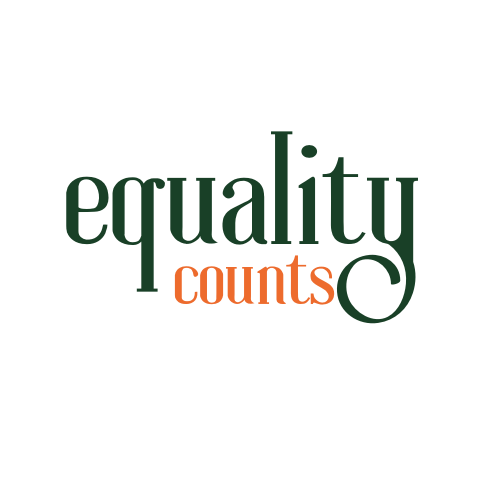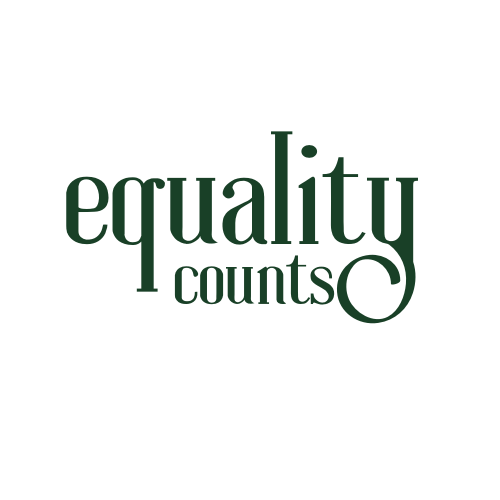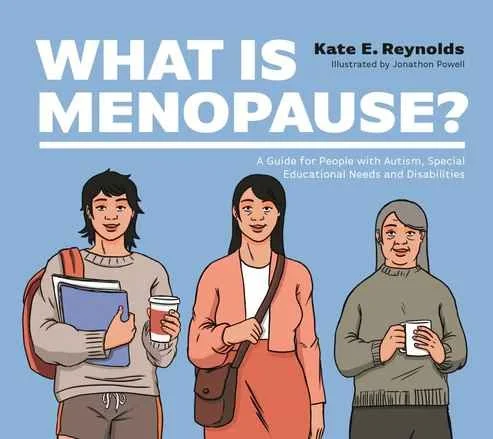Expanding Menopause Awareness
In 2023, I embarked on an initiative to bring menopause awareness to a broader audience, including people with learning disabilities and/or autism. My first project was with the fantastically friendly team at Pembrokeshire People First! The mission was to make menopause awareness inclusive of their group, leaving no one in their community behind.
We opted to hold the talk at their existing regular Wellbeing group. During the session, we created a safe space for open discussions about menopause, aimed at sparking curiosity and empowering participants to seek accurate information and support. We began with a foundational understanding of menopause, discussing its natural occurrence, hormonal changes, the diversity of symptoms and experiences, and the various paths to menopause. Attendees were encouraged to share their personal experiences, giving insight into the broad spectrum of menopause journeys. We looked at how menopause is portrayed in the media and its effects on societal perceptions and individual expectations. We talked about some of the treatment and management options that people might hear about, including Hormone Replacement Therapy (HRT), lifestyle adjustments, and the importance of consulting healthcare providers for personalized treatment plans.
A key part of our discussion focused on navigating the healthcare system effectively, sharing tips for communicating with healthcare providers, making best use of time with them, and advocating for oneself. We talked about taking time to plan for an appointment, empowering attendees to take an active role in their menopause journey.
The feedback from this session has been overwhelmingly positive, and this experience stands out as one of the most memorable and rewarding of my career, reinforcing my dedication to expanding menopause awareness in an inclusive and accessible manner. It's a powerful reminder of the importance of stepping out of my comfort zone and considering the needs of others! Importantly it felt like we were building a supportive community network within Pembrokeshire People First for ongoing dialogue and support about menopause.
“ I just wanted to say a huge thankyou for last week - it was such a great, beneficial session and the way you delivered it was admirable, engaging and fantastic!”
Here's how you can create a similar impact within your community or organization:
Fostering Open Conversations: We initiated our session by establishing a safe space where all participants felt comfortable discussing menopause, setting boundaries that we were all comfortable with, including the importance of respecting language, symptom managment choices, gender identity and confidentiality. Questions were 100% encouraged but, with humour, I also made it clear that this was about everyone having chance to speak and noone hogging airtime!
Taking this time at the start is crucial for ssettling everyone in, sparking interest and encouraging people to start talking. Consider starting with the basics of menopause, including its natural progression, hormonal changes, and the wide range of symptoms and experiences. Encouraging participants to share their personal stories can enhance learning in highlighting the diversity of menopause experiences.
Addressing Misconceptions: Together, we tackled how menopause is often misrepresented in the media, ( currently overridingly negative and as a time to be feared ) we discussed its impact on societal perceptions and personal expectations. Bringing light to various treatment and management options, such as Hormone Replacement Therapy (HRT) and lifestyle adjustments can help you to demystify menopause care. Emphasise the importance of consulting healthcare professionals for tailored advice.
Empowering Self-Advocacy: A significant portion of our discussion was dedicated to navigating the healthcare system effectively, which can have additional challenges for people who may need support to attend an appointment or self advocate. Sharing tips for communicating with healthcare providers and advocating for oneself can empower attendees, and their support workers and carers. Aim to equip your audience with the knowledge and confidence to actively participate in their healthcare journey with patient participation tips.
Building Supportive Networks: Our session underscored the value of creating a supportive community network for ongoing dialogue and support. Consider how you can foster such a network within the community you’re working with, encouraging continued discussion and learning about menopause. Consider harnessing existing opportunities and events.
For those seeking accessible and easy-to-understand resources on menopause, I encourage you to visit Learning Disability Wales who have co-produced a series of menopause guides and the book by Kate.E. Reynolds What is Menopause, A Guide for People with Autism, Special Educational Needs and Disabilities
Looking forward, the session with Pembrokeshire People First has paved the way for further collaborations with similar organizations that are keen to have their communities included in menopause awareness. There's a clear need for these conversations to reach everyone, including autistic people and / or people with learning disabilities, and I'm excited to continue this important work!
#IncludeMyMenopause #InclusiveConversations




